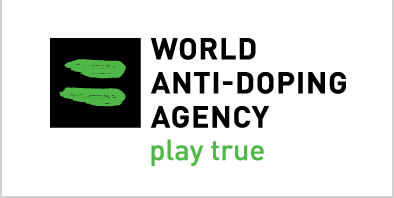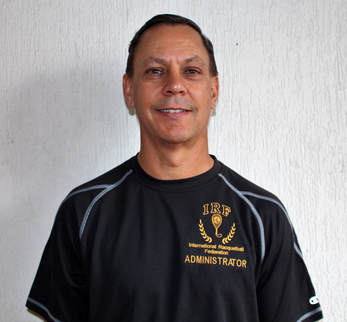Anti-Doping Information

WADA was established in 1999 as an international independent agency composed and funded equally by the sport movement and governments of the world. Its key activities include scientific research, education, development of anti-doping capacities, and monitoring of the World Anti Doping Code (Code) - the document harmonizing anti-doping policies in all sports and all countries. WADA is a Swiss private law Foundation. Its seat is in Lausanne, Switzerland, and its headquarters are in Montreal, Canada. WADA works towards a vision of a world where all athletes compete in a doping-free sporting environment.
INTERNATIONAL RACQUETBALL FEDERATION
DOPING AND HARM TO SPORT
The IRF is committed to clean sport and believes clean sport leads to fair play. We have implemented an anti-doping policy, and we adhere to all WADA anti-doping rules and regulations. We also maintain an annual anti-doping report with testing statistics that can be found on our website.
WHAT IS DOPING?
Doping is defined as the occurrence of one or more of the following Anti-Doping Rule Violations (ADRVs) according to article 2 of the WADA Code:
- Presence of a prohibited substance in an athlete’s sample
- Use or attempted use of a prohibited substance or method
- Refusing to submit to sample collection after being notified
- Failure to file athlete whereabouts information and missed tests
- Tampering with any part of the doping control process
- Possession of a prohibited substance or method
- Trafficking a prohibited substance or method
- Administering or attempting to administer a prohibited substance or method to an athlete
- Complicity in an ADRV
- Prohibited association with athlete support personnel who has engaged in doping
WHY IS DOPING IN SPORT PROHIBITED?
The use of doping substances or doping methods to enhance performance is fundamentally wrong and is detrimental to the overall spirit of sport. Drug misuse can be harmful to an athlete's health and to other athletes competing in the sport. It severely damages the integrity, image and value of sport, whether or not the motivation to use drugs is to improve performance. To achieve integrity and fairness in sport, a commitment to clean sport is critical.
WHAT DO ATHLETES AND ATHLETE SUPPORT PERSONNEL NEED TO KNOW ABOUT ANTI-DOPING?
“Every athlete has the right to clean sport!”
Intelligence and Whistleblowers

In March 2017, the World Anti-Doping Agency launched on its website a specific section called “Speak Up”, aimed to help protecting clean athletes. This section can be used to report information from who becomes aware of, or suspects, any breach of the World Anti-Doping Code.
Per the World Antidoping Code 11.2.2, all anti-doping intelligence captured or received is handled securely and confidentially, that sources of intelligence are protected, that the risk of leaks or inadvertent disclosure is properly addressed, and that intelligence shared with them by law enforcement, other relevant authorities and/or other third parties, is processed, used and disclosed only for legitimate anti-doping purposes.
To report an infraction or the possibility of an infraction, please contact Mr. Dean Schear.
Per the World Antidoping Code 11.2.2, all anti-doping intelligence captured or received is handled securely and confidentially, that sources of intelligence are protected, that the risk of leaks or inadvertent disclosure is properly addressed, and that intelligence shared with them by law enforcement, other relevant authorities and/or other third parties, is processed, used and disclosed only for legitimate anti-doping purposes.
To report an infraction or the possibility of an infraction, please contact Mr. Dean Schear.

